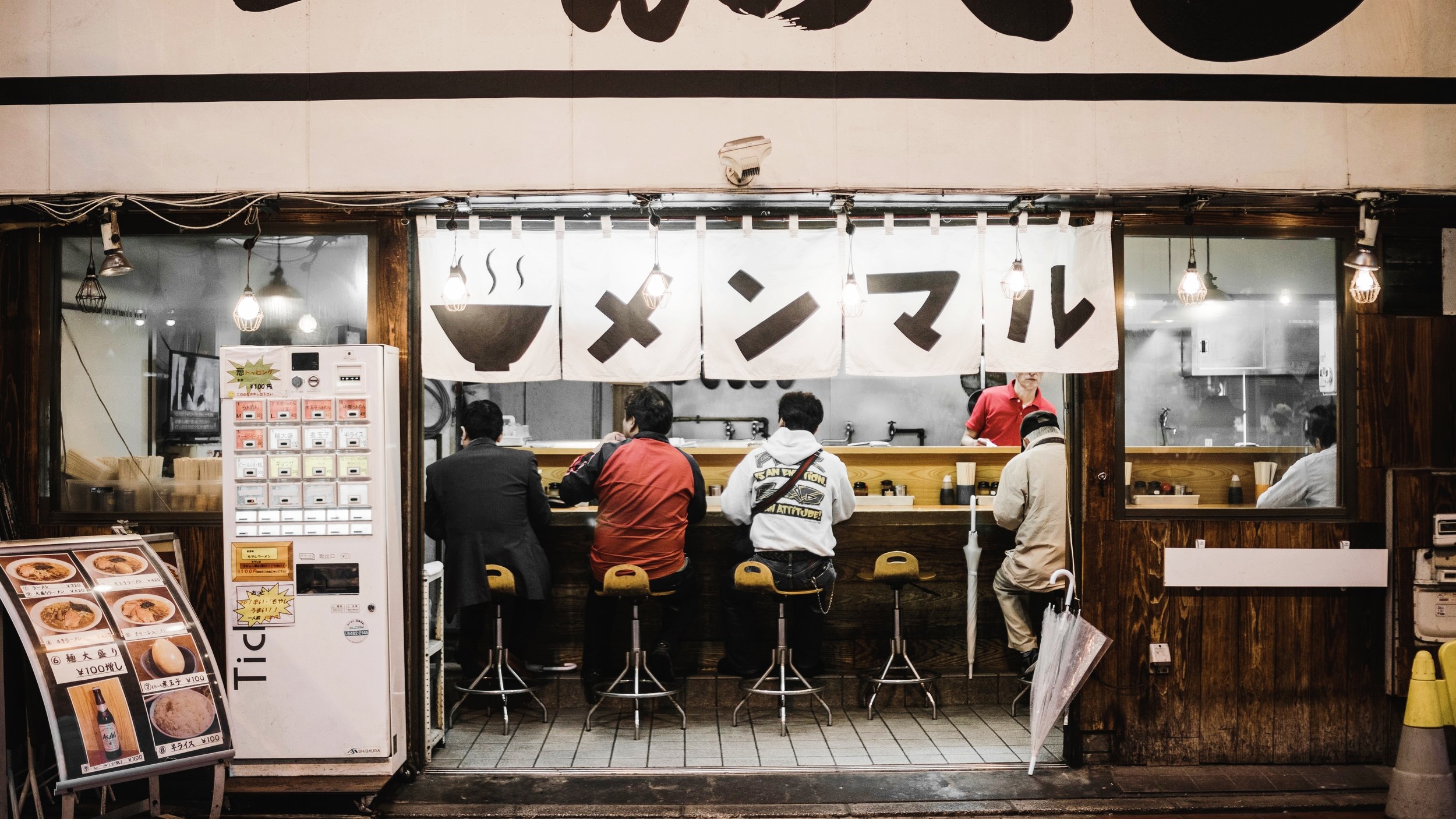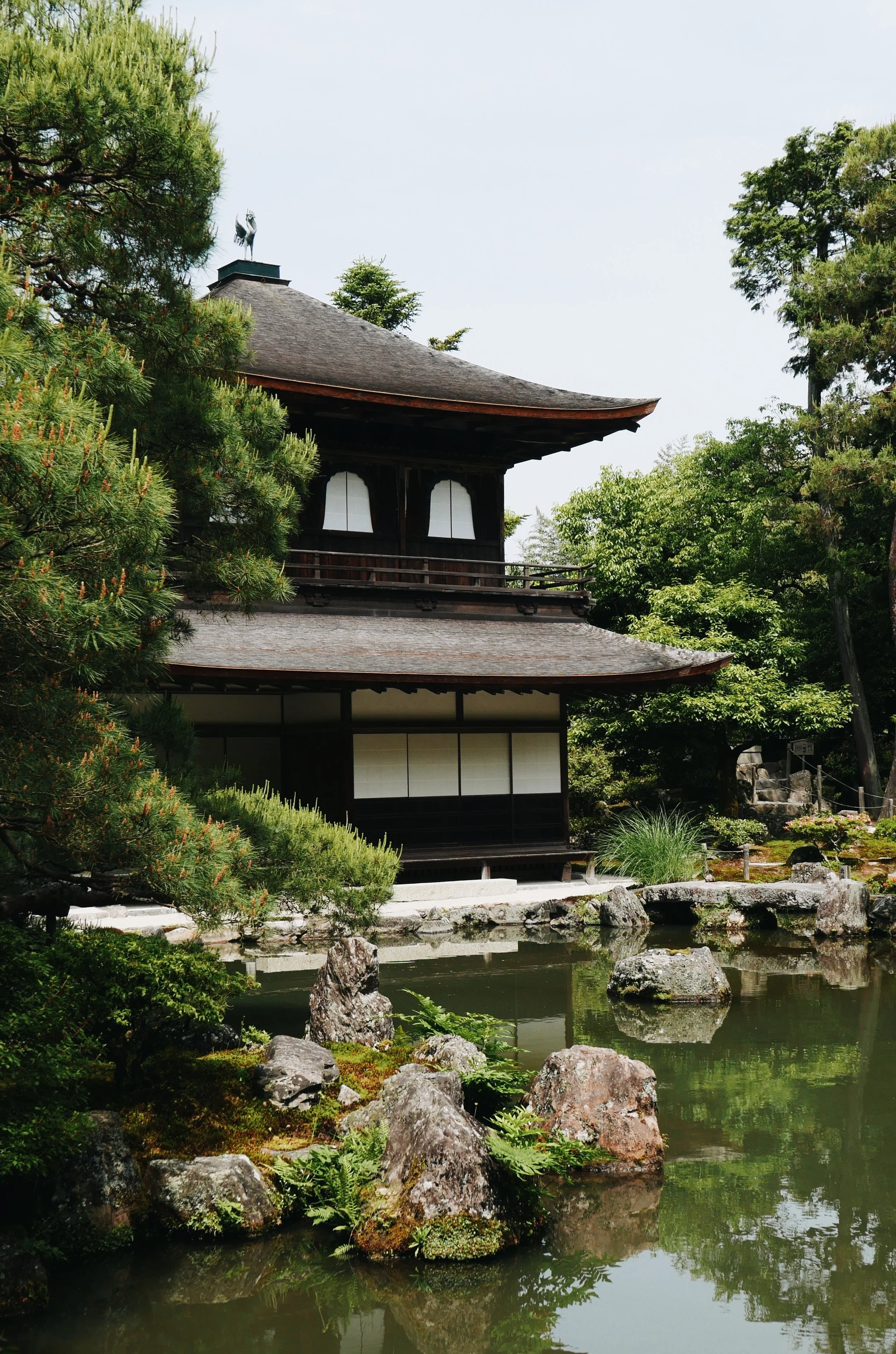A Quick Guide to Japanese Etiquette
Last year while I was in Japan for our Ace Camp in Fujino, I was introduced to several different local customs and mannerisms.
These unspoken rules play a role in daily life, but don't fret it too much, the most important thing is that you act kindly and with respect. If you are keen to fit in and impress locals here are 12 tips to keep in mind for your next journey to Japan.
THE ACE CAMPS 12 step guide TO a few key JAPANESE customs
1. It Is Impolite To EAT + DRINK On The Street
In general, walking and eating or drinking is frowned upon. This might sound a bit baffling. You’ll see most people carrying their takeout in secure bags to eat later, or finishing their drinks while standing at the vending machine. All vending machines have a bin next to them so you can discard any packaging and empty cans. All street food vendors usually offer a small area for you to eat your food right away.
2. NEVER Pour Your Own Drink
When pouring glasses from a shared bottle (eg of sake), it’s customary to pour drinks for others in your party, and allow someone else to pour yours for you. Say kam-pai for ‘Cheers!’ before drinking. It's popular to order shared bottles of beer and sake + this routine is one of the charms of an evening.
3. USING CHOPSTICKS
Never pick a piece of sushi from your plate and transfer it to another by using your used chopsticks. Simply use the end of the chopsticks which hasn't touched your mouth. The Japanese are extremely clean and conscious of personal hygiene, hence using the same chopsticks to share food is frowned upon.
Don’t stick your chopsticks into a bowl of rice, as this is reminiscent of a funeral rite. Finally, avoid anything that might be considered ‘playing’ with your chopsticks (this includes using them as a spear, drumming on the table, waving them to get the waiter’s attention, and using them to get at that itch on your back).
4. GET SLURPING!
Feel free to slurp your noodles, it may feel a little wrong at first but here it is SO right. Eat in any noodle restaurant and you’ll be surrounded by fellow diners noisily and unabashedly slurping away.
5. TIPPING
There is no custom of tipping in Japan. Avoid leaving tips at restaurants, bars or in taxis. The fact is, tipping is simply not expected, so if you leave a tip it will only cause confusion, and almost definitely won’t be accepted. If you leave money behind, someone will very likely run after you to give you your money back.
6. IF YOU HAVE THE SNIFFLES...
Blowing your nose in public is frowned upon, so if you have the sniffles, try to find a private place to clear your sinuses or at least do it as discreetly possible. You may also see people walking around wearing surgical-style masks – some choose to use these when they have cold or flu to help prevent passing on their ailment to others.
7. Phone Calls + Quiet VOICES
It is considered impolite to talk on the phone whilst on the public transport. If someone calls you, ignore the call, send them a text saying you will call them back as soon as possible. People tend not to speak loudly when travelling on public transport, so as not to disturb fellow passengers. Remember to blend in and keep the conversation to a low volume.
8. TAXIS
Most taxi doors in Japan are automatic. This means they open and close for you. Please don't attempt to operate the doors yourself as this may upset the driver.
9. MONEY TRAYS
Many stores will have small trays to place the money in when paying for an item, rather than handing it directly to the cashier. If you spot such a tray be sure to put the money in there as disregarding it is somewhat rude. Another thing to keep in mind is that most people pay with cash and few places accept credit cards besides the ‘superstores’ or expensive restaurants and hotels. Be sure to carry enough cash with you to cover your expenses just incase.
10. GIFT GIVING
When foreign visitors meet friends or a host family in Japan, it is a nice gesture to consider bringing them a small gift. Recommended gifts items include food, drinks or other products from your home country.
11. PLEASE REMOVE YOUR SHOES
Before entering a home, or a traditional Japanese Inn, or any area with tatami matting, you will need to remove your shoes. If possible, we recommend traveling to Japan with shoes that slip on and off easily. It’s also a good idea to make sure your socks match (and don’t have any holes in them)!
Some restaurants with tatami(woven straw matting) areas will also require visitors to take off their shoes, as will some hostels and historic sites. Wherever you’re required to remove footwear, this is non-negotiable.
Don’t worry if you can’t remember all of these customs and tips – Japanese people are generally very understanding, and realize that most travellers are usually trying their best.
I'll be off to Japan later this year and in 2019, and you can read all about our trip here. Should you have any questions, feel free to get in touch~ jessica@acecampstravel.com
- Jessica
12. VISITING AN ONSEN
Traditional Japanese Baths, known as Onsens offer an interesting cultural experience, and when visiting there are a few key guidelines to keep in mind.
First of all, put your phones away, you should leave your phone in the little basket with the rest of your belongings when you change. No clothing or swimsuits are permitted to be worn. Next you will wash yourself before you enter the baths. This includes shampooing your hair and scrubbing every square inch of your body. And just when you think your hair is the cleanest it will ever be, it's not clean enough, so never put your head into the water. You should only be submerged up to your neck.
Depending on the onsen. you'll likely be provided with two towels: one large and one small. The large one is for fully drying off after your relaxing soak; take the small with you, however it’s important not to let the towel touch the water! You can hold on to that little towel while you’re soaking—fold it, put it on your head or place the it on a nearby rock or other surface.






